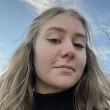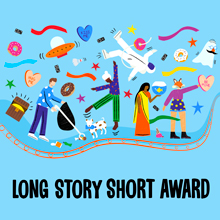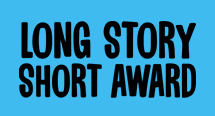Like pasteboard, the seeping planks
buckle underfoot, marked easily
with fingernail or jagged
...
[+]
When the break was over, the proctor read the instructions for the written portion of the test. Indistinct shouting echoed through the hallway, and seconds before we would have broken the seal off the test, a man's voice shouted, "I have a gun."
The proctor continued reading, not listening. A few of us glanced at each other, then one of the boys spoke up. She pulled down her reading glasses and hurried to the door. The shouting intensified. At a glance out the little window, she swore and whisper-yelled at us to run to the back of the room.
We didn't have to be told twice. Maya and I made frantic eye contact, and the eight of us huddled on top of the long, skinny table, shoulder to shoulder, knees to chests. Lights off. Just like we'd been practicing since elementary school, and even more since Parkland the year before.
The shooting would start at any second. We sat there, huddled and silent, waiting for gunshots in an eerie suspension. Should I plug my ears? Maya and I held hands, and I was almost certain we would be dead within a minute.
Five seconds passed, full of distant commotion. It would either be us or the kids across the hallway. We braced for impact.
News articles formed in my mind, the eight of us as statistics. Four dead, four injured. Six dead, two injured? That, or I was giving a press interview. "I wasn't even surprised," I would tell them, crying as they filmed me outside the school. "It was only a matter of time before it happened here."
Still, no gunshots sounded. After a minute passed, our shoulders dropped and we dared to look at each other. My heart pounded like I'd sprinted five miles. After another minute, we had the nerve to stretch our arms and whisper speculations. The proctor shushed us, worried that someone would hear us or that we'd talk about test questions.
The gunshots never came, but we stayed there huddled in the dark, hardly moving. Unknown to us, the rest of the school was returning to normal while we stayed silent and confused with our inaccessible phones and shut-off classroom speakers, thanks to AP testing.
Nobody came to tell us if we were safe. The proctor wouldn't budge on the phone rule, even after we begged her in whispers. She couldn't have hers, either.
When the next bell rang, no one moved through the hallway. Nothing made sense. Still, it had been enough time that we knew that the shouting man would have been apprehended. We were no longer threatened. Only confused, with lingering fear.
My brain ran a marathon in the two hours we sat on the tiny table, but it kept circling back to the fact that two days earlier there had been a school shooting in Colorado. I remembered reading the article and hardly caring that only one student died. Thinking that it barely counted as a real school shooting. So desensitized.
Now, sitting there with my hands still shaking, I couldn't comprehend it. You'd think it would be easier to imagine after experiencing the horror of the beginning seconds, but it didn't seem possible that my threshold for fear could have extended further. The boy who died in Colorado had sacrificed himself to apprehend the shooter. It ate at my conscience that I couldn't remember the name of the boy who had done what now seemed almost fictional—choosing to fight, not freeze.
While the eight of us pretended we hadn't been scared, my brain played a photo reel of alternate realities. Click. The floor spattered in blood. Click. A man in a dark hoodie walking through the door. Click. Our bodies sprawled dead in the hallway, had we been there two minutes later. Click. Maya with a bullet through her head.
Another side of my brain worried about the possibility of our test scores being canceled for the disturbance, but I shushed it, guilty at the selfishness of the thought. But I had studied so hard.
Another side of my mind convinced me that, though the hallways were now buzzing with police, the shooter was somehow still there, ready to barge through the door.
Eventually the principal remembered the testing room and came to tell us we were safe. Our eyes adjusted to the light, and we sat down at the testing tables, knees aching. It took all my willpower to summon chemistry back to my brain and sit for two more hours with the lingering shock. And with no closure—the principal didn't explain anything. During the test, my thoughts sounded muffled like my brain was stuffed with cotton balls.
After, Maya and I stumbled through the empty hallway, trying to figure out what to do. Go home? No, we needed an explanation. We found our calculus teacher on the other side of the school, who told us he'd experienced nothing more than a routine medical lockdown. The administration had lied to stop a mass panic. Maya and I could only laugh in disbelief. Already when we recounted our near-death experience, or what felt like one, it seemed overdramatic.
I still haven't been able to shake that feeling when I think of this story. But I can't shake the survivors' guilt, either. Ethically, logically, I've tried to figure out if it's possible to have survivors' guilt without ever having been in danger. I don't know. When I read the accounts of Parkland students who describe the panic of running to hide, and even of hearing gunshots, I feel I can empathize with them. But when they describe helplessly watching their classmates bleed out on the floor, I know I will never know. And I'm grateful I don't.
When the eight of us spoke of the incident in days after, our other friends were shocked by our experience, but I still felt guilty, like I was capitalizing on it. The day after, we learned it had been a simple misunderstanding. An overly cautious call to the school said there was a man with a gun on 600 South, a street by the school. On the phone, it was mistaken for the 600 hallway, where we were taking the chemistry test. Even then, there wasn't a true threat—the gun was in the back of a DNR officer's truck. But the miscommunication sent the vice principal to detain the supposed threat, leading him to yell "I have a gun" through the 600 hallway.
It wasn't until a year later that Maya and I spoke of the incident again, more deeply than in casual mentioning. Both of us thought the same—it was traumatic, but we felt guilty for being affected. Survivors' guilt, but guilty for being spared the true experience? Even to each other, we were afraid of sounding melodramatic. The circumstances led us to tuck it quietly away as a crazy occurrence instead of a traumatizing experience.
On the day it happened, Maya and I eventually made our way out to the almost-empty parking lot after the conversation with our calculus teacher, unable to stop ourselves from laughing so hard we cried. Or maybe it was the other way around. Still too unstable to drive, we collapsed on the ground and laid flat on our backs. The sky was cloudless. There were no sirens. No crowds of evacuated students and frantic parents. No news crews. No body bags. And, finally, no more studying for chemistry.




